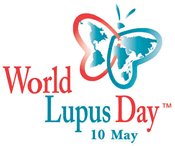Archived
Please note, this page may contain outdated information or subject matter.
Being able to devote her professional life to research into lupus is a true privilege, says Dr Kate Webb who holds a prestigious Research Training Fellowship from Action.
What inspired you to investigate this particular area?
Juvenile systemic lupus erythematosus (SLE) is a disease that affects many different organ systems and has a variable course and prognosis. It affects every area of a young person’s life. The physical side involves pain, rashes, tiredness and different organs, especially the kidneys and brain.
Importantly though, it is a disease for which we cannot provide a cause, cannot provide a specific prognosis for each person and for which there is no cure. This is a difficult diagnosis for a young person to deal with and I feel that we urgently need to be better able to understand and ultimately treat lupus in young people.
What does Action funding for this study mean to you?
It is a privilege to be able to spend 100 per cent of my time doing research and have the space away from every day clinical work to commit myself to this research. Action funding has allowed this precious time to work on lupus and to develop my skills and research mind so that I may become a scientist in this very special field.
What does a typical day look like for you … or is every day different?
Every day is different as I do different experiments, but most days I perform or design experiments in the lab which look at how young people’s immune system changes over puberty and how this may contribute to young girls developing lupus. I work with blood donated by healthy young people and those with lupus. Meeting these young people is one of the highlights of any day.
Can you tell us a bit about your team?
I am lucky to work within a centre with a pure focus on rheumatology in children and adolescents. My supervisors, Dr Ioannou and Professor Wedderburn, are leaders in their field. I work with a post-doctoral colleague, Lauren Bourke, and a research assistant Ania Radziszewska who know everything about lab techniques. They are a great help to me as doctors are always a bit out of their depth in a lab. Hannah Peckham is a research assistant in our centre and she recruits all of the healthy young people for the study.
Who’s your research hero, and why?
Professor Heather Zar is my research hero. She is the head of the paediatrics department at the University of Cape Town (UCT) and a world class scientist and researcher. She has led various studies on pneumonia in children and has come up with innovative ideas for research and therapy that are specific to African patients. She was the first paediatrician to receive the World Lung Health award in 2014. Professor Zar is the only member of the paediatric department and one of three women at UCT to have received an A-rating from the National Research Foundation, indicating her standing as a leading international scholar. In addition to being a world class researcher, she is also an inspirational mentor and trainer who inspires me in my work.
As a charity, Action began in 1952 with our founder’s quest to find a cure for polio. What led you to a career in medical research?
I did my clinical training in South Africa. In South Africa, there is excellent clinical training but there is very little training for doctors in the scientific research of diseases. I believe that this is a real pity, as we are missing opportunities to discover new things about diseases. In SLE, most studies are done on western patients, but we know that the disease manifests in a more severe way in African patients with different genetic susceptibilities. There are so many unanswered questions in lupus that I really wanted to investigate. I am inspired to use this really special opportunity that I have received through Action Medical Research to increase research training and capabilities for paediatric doctors in the UK and South Africa in the future.
Action’s loyal and lovable mascot Paddington Bear™ is very fond of marmalade sandwiches. What’s your favourite snack?
Most definitely Hobnobs!
Tell us something that will surprise us…
I have an ancestor, Joshua Norton, who in 1859 declared himself the ‘Emperor of America’.
Dr Kate Webb has been awarded a Research Training Fellowship of more than £200,000 for her three year study into SLE.

